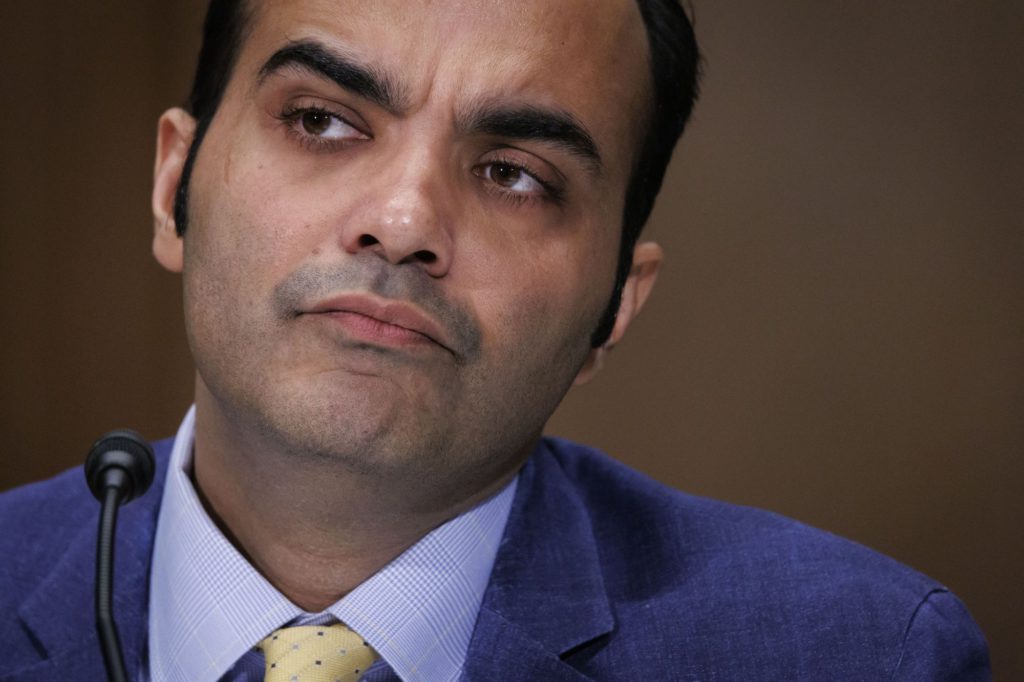Wells Fargo & Co. agreed to pay $3.7 billion to settle allegations that for years it mistreated millions of customers, causing some to lose their cars or homes. That record-setting amount still doesn’t mean the bank’s problems are over.
(Bloomberg) — Wells Fargo & Co. agreed to pay $3.7 billion to settle allegations that for years it mistreated millions of customers, causing some to lose their cars or homes. That record-setting amount still doesn’t mean the bank’s problems are over.
The head of the Consumer Financial Protection Bureau vowed that his agency might put further limitations on the bank. And the company itself warned it will have to set aside billions more in the fourth quarter to cover not only Tuesday’s settlement but other litigation as well.
“While today’s order addresses a number of consumer abuses, it should not be read as a sign that Wells Fargo has moved past its longstanding problems or that the CFPB’s work here is done,” Rohit Chopra, the agency’s director, said on a call with journalists. “Importantly, the order does not provide immunity for any individuals, nor, for example, does it release claims for any ongoing illegal acts or practices.”
Tuesday’s agreement with the CFPB includes more than $2 billion in redress for customers, with the agency saying it found “widespread mismanagement” of auto loans, mortgages and deposit accounts. Taken together, the episodes chronicle an extraordinary 11-year period of illegal activity and mismanagement at one of the nation’s largest banks.
“We remain committed to doing the right thing for our customers and working closely with our regulators and others to deal appropriately with any issue that arises,” Chief Executive Officer Charlie Scharf said in a statement. “This far-reaching agreement is an important milestone in our work.”
Consumer Harm
According to the CFPB, Wells Fargo illegally repossessed vehicles, bungled record-keeping on payments and improperly charged fees and interest. The bank agreed to a consent order without admitting the agency’s allegations.
The CFPB found some of the bank’s misdeeds continued until earlier this year. Take its auto loan servicing business: Wells Fargo repossessed vehicles even if a borrower had made a payment or entered into an agreement with the bank to stall the action, according to the agency. In all, customers affected by conduct in the car-loan business will receive more than $1.3 billion in redress.
The problems didn’t stop there. In the mortgage business, Wells Fargo erroneously identified some 190 customers as dead, and therefore didn’t assess whether they were eligible to modify a government-backed loan in the five years leading up to 2018. The bank agreed to pay those borrowers $2.4 million, or an average of $12,631 per person.
Read how big banks are falling short on promises to Black homebuyers
Wells Fargo also illegally charged surprise overdraft fees, and in more than 1 million cases, it unlawfully froze consumer accounts “based on a faulty automated filter’s determination” that there may have been a fraudulent deposit.
“The bank’s illegal conduct led to billions of dollars in financial harm to its customers and, for thousands of customers, the loss of their vehicles and homes,” Chopra said. “We see this as an initial step to bring relief quickly to families who had their cars illegally possessed, who were tricked into seeing their accounts drained by illegal junk fees, and who had their accounts frozen without cause.”
More Charges
Under Scharf, Wells Fargo has been trying to resolve a raft of scandals that emerged in 2016 with the revelation that the bank opened millions of bogus accounts. Problems surfaced across business lines, resulting in the departure of two previous CEOs and a number of costly penalties, including the Federal Reserve’s decision to cap the San Francisco-based firm’s assets.
Securing Tuesday’s agreement actually marks a win for Scharf, who joined the firm in 2019 and has sought to move quickly to resolve the bevy of problems that have plagued the company. Scharf has long distanced himself from the actions of his predecessors, who oversaw much of the conduct described in this week’s settlement.
Still, Wells Fargo said it expects a pretax operating loss expense of about $3.5 billion in the fourth quarter, which it said includes the CFPB civil penalty and remediation, as well as other litigation expenses. The move comes after Wells Fargo already set aside $2.2 billion for similar matters in the third quarter.
“This sizable fourth-quarter number also means that Wells Fargo has been booking losses for other actions along the way that are still open-ended,” Ken Usdin, an analyst at Jefferies Financial Group Inc., said in a note to clients. “We do not see today’s action as having a direct read-though to the asset cap and its potential removal.”
The bank’s shares slipped 1.4% to $41.25 at 12:42 p.m. in New York, the worst performer in the 24-company KBW Bank Index.
Chopra Warning
In prepared remarks Tuesday, Chopra said he’s grown increasingly concerned that Wells Fargo’s recent efforts to boost profitability — through product launches and other growth initiatives — has delayed necessary reforms across the bank.
The director said federal banking regulators will have to consider whether further limitations must be placed on the bank in addition to the Fed’s asset cap and a move last year by the Office of the Comptroller of the Currency. The OCC limited Wells Fargo’s ability to acquire new mortgage-servicing business and required the bank ensure borrowers aren’t transferred out of its loan-servicing portfolio until remediation is provided.
“Our nation’s banking laws provide strong tools to ensure that insured depository institutions do not breach the public trust, and in the new year we expect to work with our fellow regulators on whether and how to use them,” Chopra said.
More stories like this are available on bloomberg.com
©2022 Bloomberg L.P.










